1. -
1.1. Don´t know in advance if it works
1.2. Barrier: Not all courses can /should be flipped
1.3. Teacher
1.3.1. Teacher preparation
1.3.1.1. A lot of work for preparation (5)
1.3.1.2. Much more preparation on both sides (5)
1.3.1.3. Too much initial work
1.3.1.4. Teacher´s perspective: High effort vs. litte incentive (5)
1.3.1.5. Huge up-front investment (for teachers / schoon) (5)
1.3.1.6. Barrier: Preparing materials. It´s time-consuming (More work for teachers)
1.3.1.7. Higher preperation effort (4)
1.3.1.8. More control & monitoring needed => takes more time from teachers (4)
1.3.1.9. Instructors need capacity building in delivering online content
1.3.2. Teacher control
1.3.2.1. In beginning time, teachers should hide some deeper knowledge discoverd by students. Because learning from discussion is more opportunistic.
1.3.2.2. Discussion topic are not only teacher given but also students decision it. Because it is nessesary for students to judge the value of topics.
1.3.2.3. Discussion group members encourage not only problem solving thinkers but also deliberative thinkers. It is nessesary to be adapivity thinker for KM.
1.3.3. Teaching concept
1.3.3.1. Testing/examination/grading needs to correspond with method (also a matter of regulation, not completly in the control of the teacher)
1.3.3.2. "more of the mainstream" (if videos are used) vs science based instructions (5)
1.3.3.3. Could reduce important social relations face-to-face contact
1.3.4. Personality of the lecturer
1.3.4.1. It depends on the personality of the lecturer, how to create the topics
1.3.4.2. Resistance of teachers (too much learning facts)
1.3.4.3. Might require the teacher to learn new skills (4)
1.4. Students
1.4.1. Student preperatioin
1.4.1.1. Lack of ability and / or willingness of students to meet expectations on self-management (5)
1.4.1.2. Higher motivation is necessary (4)
1.4.1.3. Student´s preperation: self-control is not suitable for all students
1.4.2. Student acceptance
1.4.2.1. Lack of acceptance by students (3)
1.4.2.2. Requires time to educate students to do it (3)
1.4.2.3. Depends on students + teachers not everybody is open and can really benefit now
1.4.2.4. Barrier: May not be suitable for all kinds of students (e.g. children)
1.4.3. Discussions
1.4.3.1. Barrier: The risk of loosing meaningful discussions
1.4.3.2. Less immediasy of students feedback for inputs (5)
1.5. Environment
1.5.1. Technology
1.5.1.1. More technical equipment needed (4)
1.5.1.2. Video is too slow & too expensive (4)
1.5.1.3. Videos are not always working (differnt systems, browsers, etc.) (3)
1.5.2. Ressources
1.5.2.1. More need for teaching support => more resources needed
1.5.2.2. Intructors require incentives to convert courses to flipped approach
1.5.2.3. Lack of support services at instituations for converting to online format
1.5.2.4. Increased costs (5)
2. Information
2.1. Developed at the workshop: KM Competence Development with Flipped Classroom
2.1.1. PPT of the workshop
2.1.2. Full text of the paper
2.2. At the International Conference on Knowledge Management, ICKM 2016, 10-11 October 2016, Vienna, Austria
2.3. By Barbara Geyer-Hayden, University of Applied Sciences Burgenland
3. +
3.1. Teacher
3.1.1. Teaching methods
3.1.1.1. Comes close to mentoring (4)
3.1.1.2. Combination of methods => best educational results
3.1.1.3. Can utilise peer-assessments (1)
3.1.1.4. It needs 100% attention from both students + lecturer
3.1.1.5. Can combine materials from many sources, speaches from many people & destinations (4)
3.1.1.6. Modern web-based methods improve education => new ways of teaching will come "mobility"
3.1.2. Teacher´s expertise
3.1.2.1. Long-term reduction of repetitive course aspects for teachers (3)
3.1.2.2. Shared responsibility (5)
3.2. Students
3.2.1. Physical presence
3.2.1.1. Less need for physical presence in the classroom (all the time) (5)
3.2.1.2. The time gain from avoiding going to class physically.
3.2.1.3. Statisfy desire to access learning anywhere, anytime
3.2.1.4. A lot of the learning can be conducted at a personally suitable time (mostly) (5)
3.2.2. Working students
3.2.2.1. Epxand market for students (such as working professionals) if face-to-face time can be compressed into few time slots.
3.2.2.2. Driving force: The need to work and study at the same time
3.2.2.3. Desire for more flexible learning schedules (5)
3.2.3. Repeat a lesson
3.2.3.1. Easy to repeat a lesson (as often as it is necessary) (5)
3.2.3.2. If a student miss a class it is easy to catch the lesson (3)
3.2.3.3. Videos tec. can be re-watched as many times as you like (3)
3.2.3.4. Learning in my own speed (5)
3.2.4. Student support
3.2.4.1. Supporting different learning styles (3)
3.2.4.2. Supporting motivated students (3)
3.2.4.3. Can enable experimental of knowledge technologies
3.2.4.4. Driving force: Growth in human capacity to learn without coaching (self-study)
3.2.5. Deeper into the topic
3.2.5.1. To go deeper into a topic because of self-preperation and individual learning (5)
3.2.5.2. Room for more in-depth interactions in-class (4)
3.2.5.3. Increased learner involvement (5)
3.2.5.4. Getting more deeply into topic + "individual learning"
3.2.5.5. Learning objective in the classroom is Problem solving rather then learning facts (3)
3.2.5.6. Discussions on a higher/deeper level possible (4)
3.2.5.7. Maximize use of face-to-face time for higher-level thinking and problem-solving
3.2.5.8. Students might come to class better prepared => deeper discussion (5)
3.2.5.9. Opportunity to define/develop individual projects (2)
3.3. Environment
3.3.1. Plattforms
3.3.1.1. IT-Plattforms existing / Technology (2)
3.3.1.2. Easy access & deployability of enabling technology (5)
3.3.1.3. Produced materials easily stored (3)
3.3.1.4. Driving force: High speed communication technologies
3.3.1.5. Produced materials easliy transferable (2)
3.3.1.6. Easy Access (3)
3.3.2. Ressources
3.3.2.1. Time is money (4)

